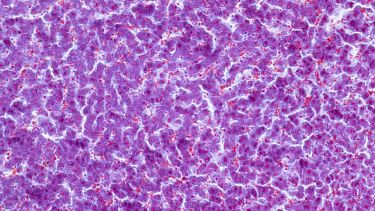- Researchers from the University of Sheffield's Faculty of Science have been awarded £1.4million to study how organs develop
- The project aims to understand how organs control their form by correctly orienting their cells
- This findings will generate valuable new knowledge that can inform new treatments and interventions
Scientists at the University of Sheffield have been awarded £1.4million to study how organs control their shape and form as our body grows.
Dr Alexander Fletcher and Professor David Strutt, from the University of Sheffield, will lead a new project, Understanding self-organised tissue patterning across scales, thanks to a £1.4m funding grant from UK Research and Innovation (UKRI) and Wellcome.
The project will research how organs control their shape and form as they grow and will seek to understand how organs control their form by correctly orienting their cells.
Dr Alexander Fletcher, from the University of Sheffield’s School of Mathematics and Statistics, said: “Understanding how organs develop is crucial because we know that when organ development does not happen correctly, we can get developmental diseases or cancer. If we can understand the ways of controlling shape and form, then perhaps we will be able to intervene to correct these diseases.
“One important way that an organ can control its form is by correctly orienting its cells relative to each other. This is true not just in humans, but in all animals, including the humble fruit fly.
“We want to understand how the molecules that make up the cells interact with each other to ensure each cell has the correct form and how so many cells interact together to form an organ, successfully, that is millions of times larger than each single molecule.”
The researchers will use experimental and modelling techniques to determine how cells become, and stay, oriented correctly in fruit fly wings.
This will generate valuable new knowledge that can eventually inform new treatments and interventions in humans.
The project is one of nine funded by a £18 million investment from UK Research and Innovation (UKRI) and Wellcome through the Physics of Life Strategic Priorities Fund, a unique approach harnessing physics to tackle the grand challenges in life sciences.
Science Minister George Freeman said: “One of the unique strengths of the UK science ecosystem, and our new research agency UKRI is the ability to bring different sciences together - to unlock new discoveries and solve the big challenges of our day.
“From new carbon capturing algae to mapping brain functions, the Physics of Life programme is funding exciting new approaches with potentially major societal benefits.”
The Physics of Life programme is delivered through UKRI’s Strategic Priorities Fund by the Engineering and Physical Sciences Research Council (EPSRC), Biotechnology and Biological Sciences Research Council (BBSRC) and Medical Research Council (MRC). This second phase is further enhanced by support from Wellcome.
EPSRC Executive Chair Professor Dame Lynn Gladden said: “Physics of Life builds on a decade-long focus with the research community to bring together physics and the life sciences to improve our understanding of living systems.
“Through a wide range of innovative approaches, these projects will generate important new knowledge that will help us to answer some of science’s biggest problems, ranging from how life formed through to tackling climate change.”
Michael Dunn, Director of Discovery Research at Wellcome, said: “It is important to recognise that progress in the life sciences has at times been greatly accelerated by collaborating with other scientific fields.
“With interdisciplinary teams of physicists, engineers and biologists, the Physics of Life projects will draw on cross-cutting expertise, helping to deliver exciting new insights with the potential to improve life, health and wellbeing.”
Additional information
Contact
For further information please contact:

